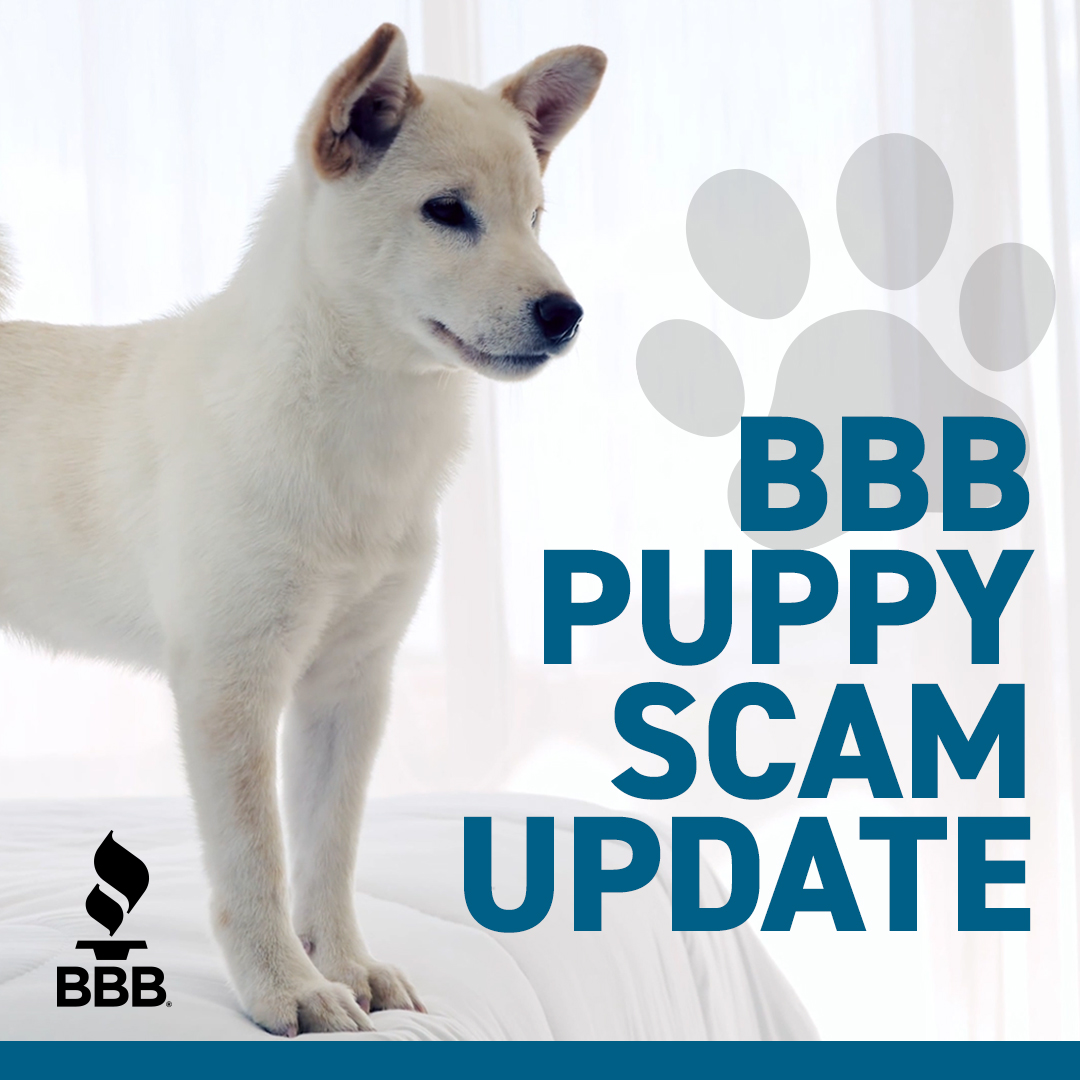CROMWELL, Conn.—The COVID-19 pandemic has dramatically increased demand for pets as people seek adding a pet to the family to ease the loneliness and tension of prolonged time at home. Many feel that they now have more time to train a puppy. With this rising demand has come a spike in pet scams, in which an online search ends with a would-be pet owner paying hundreds of dollars or more to purchase a pet that ultimately doesn’t exist. Better Business Bureau (BBB) advises extreme caution when shopping for a pet online, especially in light of scammers’ evolving tactics.
Soon after cities and states began to impose tighter restrictions to curb the spread of COVID-19, BBB Scam Tracker saw a spike in pet fraud reports, with nearly 4,000 reports received in 2020 from the U.S. and Canada. Data from
BBB Scam Tracker shows more reports about fraudulent pet websites in April than in the first three months of the year combined. The COVID bump is continuing into the holiday season with consumers reporting 337 complaints to BBB about puppy scams in November 2020, a dramatic increase from 77 for the same month in 2019.
The median loss reported to Scam Tracker in 2020 is $750. Those aged 35 to 55 accounted for half of BBB reports in 2020. Since January 1, 2020 there have been 47 reported puppy scam victims in Connecticut with a total loss of nearly $30,000.
Law enforcement and consumer advocates now say a person searching online for a new pet is extremely likely to encounter a scam listing or website.
Scam Tracker reports show that many fraudsters are telling would-be pet owners they cannot meet the animals before sending money.
Petscams.com, which tracks and exposes these scams, recommends using another tool popularized by COVID-19 -- video conferencing -- to meet the animal and owner virtually before buying as a way of reducing scam vulnerability.
At the current pace, pet scams reported to BBB will be nearly five times as many as in 2017, when BBB published its first
in-depth investigative study on pet scams. The projected dollar loss from these scams is expected to top $3 million, more than six times the total losses reported in 2017.

